"The international system is broken." British lawyer Philip Sands on how to punish Putin for the war in Ukraine
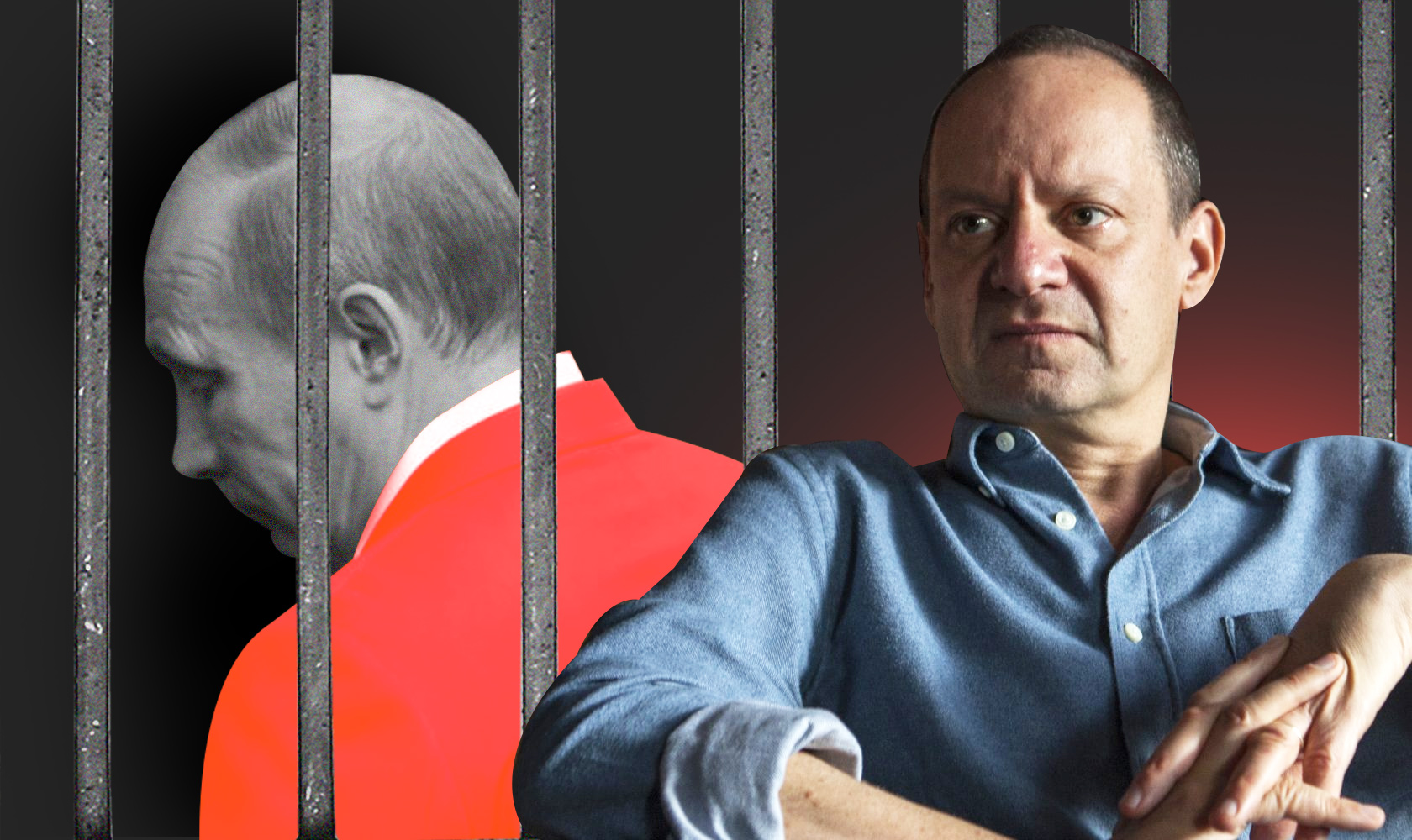
Philip Sands is a respected British lawyer. He has served at the UN International Court of Justice and the European Court of Human Rights. Two decades ago he was appointed as an adviser to the Queen. He teaches at Harvard University.
But in a conversation with several journalists from different countries, hurrying to a lecture for students, he asks: "Have you been to Lviv?". And when he hears "no’, he insists: "You surely have to go there."
He knows this city in western Ukraine well and even advises his favorite place to drink coffee with strudel. Sands has been here almost every year for the past 13 years.
The British lawyer is connected with Lviv not only by travels. Almost a century and a half ago, his grandfather was born here in a Jewish family. And 80 years ago, this family suffered from the Holocaust.
Later, Sands came to his grandfather's homeland to tell the world the story of two other people from Lviv's Jewish families. In 2017, he published a best-selling book about Hersh Lauterpacht and Rafal Lemkin in Ukraine.
With their efforts during World War II the concepts of "genocide" and "crimes against humanity" emerged. Appeared in response to the atrocities of the Nazis.
But, unfortunately, these concepts have not remained only in history. And now Philip Sands, who is equal to the experience of Lauterpacht and Lemkin, continues their work.
He is involved in an informal group that advises the Ukrainian government on the investigation of Russian war crimes. And he talks about whether it is possible to punish Vladimir Putin, what the tribunal against Russia will be like, and why the West is responsible for its impunity.
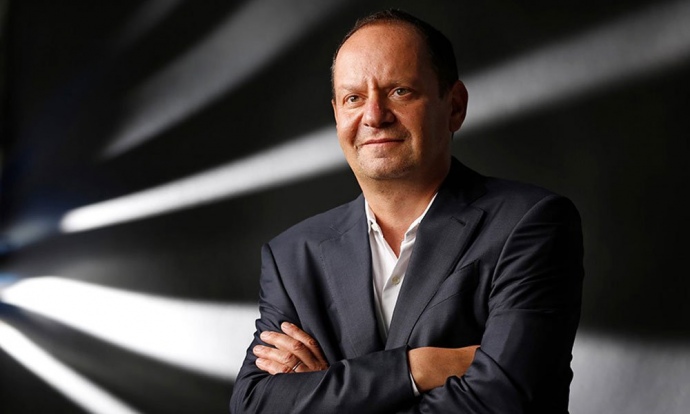
– A few days ago the whole world was shocked by the photos of russian’s atrocities in the Kyiv region. Which was your reaction in the first place? As a lawyer who works with in international criminal law, as a member of Ukrainian jewish family that went through this Holocaust and it's your personal history and as writer who describes crime as a history. So what was your reaction?
– So the events in Ukraine feel intensely personal for me. And I feel I have now a very strong personal connection, I have made very good friends particularly in Lviv.
And this is different from other country conflicts that I work on in a professional capacity or that I know about. I’m constantly in fact having to try to remind myself to keep a little bit of a distance in a sense that it is important to not get too personally involved and to not allow one’s own emotions to absolutely dominate. That is not always so easy.
I wrote a first opinion piece for the Financial Times around 28th of February. After within a day and I was contacted by the foreign minister, Mr. Kuleba. We talked and I started working with professor Nikolai Hnatkovskyy, who is his advisor on the crime of aggression.
There are 4 international crimes since Nuremberg which were established in 1945. The oldest one is war crimes, which exists since the 19th century and which concerns in large part the protection of civilians from the horrors of what’s happening.
Then in 1945 we had the invention of the crimes against humanity which is a systematic and widespread attacks on civiliant; genocide, the prohibition on the distruction of groups; and what in 1945 was called crimes agains peace but today the crime of aggression waging and manifestly illegal war.
Ironically that concept of a crime of aggression was put in Nuremberg by the Soviets. The Soviet jurist Aron Trainin, then integrated into the laws of the Soviet Union, Belarus and Ukrainian Soviet Socialist Republic and it exists in the laws of the 3 countries today.
And I work very actively to keep a focus on a crime of aggression which in Nuremberg judges called the supreme crime. If war had not begun and did not continue there would not be war crimes and crimes against humanity. So for me the accent must be on a crime of aggression.
In large part because it is the only way with any degree of certainty to reach the top table in Moscow, to reach the president Putin and to reach the foreign secretary Lavrov, and to reach the defense minister and the intelligence people and so on and so forth.
I am concerned about is that we will find ourselves in 3 or 4 years time with criminal proceedings in the Hague in the International Criminal Court for war crimes and crimes against humanity and the defendants are mid level military people. But the top people are effectively let off the Hague. That for me would be a terrible situation.
It appears that war crimes are being committed in Ukraine. It appears that they are being committed on a very large scale that could be described as widespread and systematic, which means that also it appears that crimes against humanity are being committed.
I understand why president Zelenskyy has called what is happening a genocide and I undertsand that he’s using this expression in a political sense. Perhaps not so much in a strict legal sense. Proving genocide in law is very difficult and looking at the judgements of internal courts and tribunals it’s not yet apparent to me that what is happening is in legal terms a genocide.
I actually don’t believe that a genocide is worst than a crime agains humanity. I think that a crime against humanity is as terrible as a genocide.
– How soon can the trial for Russian war crimes begin?
– The International Criminal Court is now investigating war crimes and crimes against humanity. These things take time moving.
The challenge is not just proving that war crimes have happened. Or crimes against humanity happened. You need a lot of evidence to identify who was there, who committed the act, and who was responsible for allowing the act to happen. And if you were the prosecutor it's very important to get it right. You don't want to be indicting the wrong person.
There are two levels: there are the people who were on the ground in Bucha, in Mariupol. So we are talking for the initial indictments, I think many months at least if not a year or more.
In parallel, of course, there is a Ukrainian prosecutor general who is investigating and also prosecutors in Germany in Lithuania and in Poland. So there are multiple efforts underway and there needs to be coordination between all these efforts.
I think one thing that is important is that one totally understands the desire to move things along as fast as possible and I share that, to say. But it's more important to get it right. It would be disastrous to find in two years time you’ve got there any people well you don't have enough evidence. It's better to take the time now to make sure that you've got the right people and you've got all of the evidence.
– So it looks like it's easier for Ukraine now to ndict Putin of aggression in Ukraine, than of war crimes for example in Bucha?
– Yes. From my own experience of being involved in many cases – proving war crimes, crimes against humanity and, even more, genocide takes a huge amount of time
Whereas the crime of aggression is very clear. The war was manifestly illegal. You can only justify a war if it was in self defense that is an absurd argument. All the Security Council has authorized.
The International Court of Justice has already adopted a binding ruling that Russia must stop and must leave the territory of Ukraine. So Russia is in violation of the order of the International Court of Justice.
We are working in our little group Ukraine and five other countries, informally, with an international prosecutor. And he has said to us that he could get an indictment of the top people responsible for starting the war and continuing the war with it by the time the summer comes. Very, very soon. It's very clear on the crime of aggression.
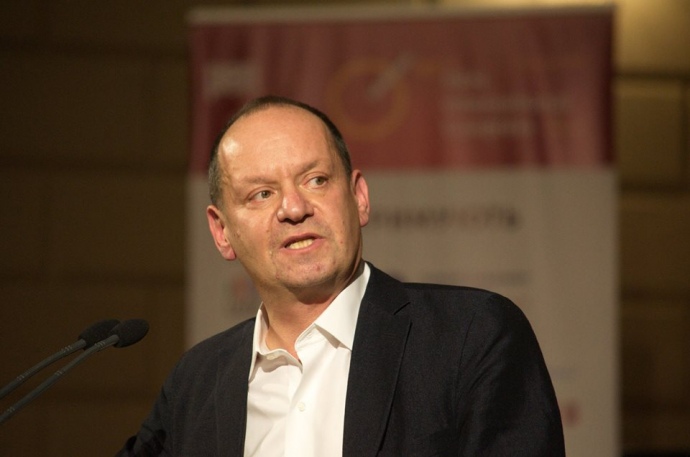
– Under which conditions will we see Putin on the dock? Because I don't think that NATO will capture Moscow and I don't think Putin will lose the elections like the president of Yugoslavia Slobodan Milosevic Miloshevich.
– Basically there are two models: Germany in 1945, Serbia in 1993. And in both cases it took a change of government, who then decided, obviously, that the old regime would go and they would be subjected to prosecution.
But if you go back to 1942 when the idea of Neurmberg began and people proposed prosecutions, no one really thought it would happen. Noone thought Hermann Göring would actually be in the dock.
In 1993 when they created the Yugoslav tribunal, no one really thought that Miloshevich would ever be in the dock. But it happened
The reality is we just don't know what's going to happen in Russia. We cannot predict all of the different situations. And the possibility that we do not get access to the main people, I think is not a reason for not proceeding.
One of the possibilities is change in Russia. Another possibility is that some of the people around Putin may say: "You know what? We’ve seen enough. I'm out of here".
We've seen some people already leave the country, many senior people have left the country. I am told from people who are watching very closely what is going on, that in some of his inner circles there is dissent. There are people who disagree with what is going on.
– You represented Georgia in a case against Russia and unfortunately it wasn't successful. The UN court then refused to hear the case. What has changed after that? Is it possible that we will have the same scenario with Ukraine?
– No, I don't think so. I think the scale of what's happening is so gross and so great that you've seen the reaction of various international courts already.
The decision of 2008 in Georgia versus Russia was a terrible decision. The court didn’t have its jurisdiction and I think this is all a part of a bigger story which, after time, we must look at very carefully. And that is the responsibility of the West and of institutions for what has happened.
And there were a lot of warning signs: South Ossetia, Abkhazia, Chechnya, Crimea, and the West did nothing. And institutions basically did nothing. I mean the ICC had jurisdiction over Ukrainian matters since 2014.
Of course this in no way excuses what Russia has done. But I think we have to look deep into our own hearts. And ask ourselves the question, how are we, the countries of the West, responsible and complicit in sending a signal to the regime in Russia that they can get away with all sorts of things.
Whether it is not responding to uses of military force and crimes being committed. Or the oligarchs coming and living in London in conditions of encouragement which were taken by the British government.
We have got it wrong and we sent a signal which made Mr Putin think he could get away with this. He's not going to get away with it. But I think the West has a responsibility.
– How can a tribunal be created and how will it function?
– Legal advisors of five countries are working with the legal advisors of Ukraine in exploring how this could be done. I'm informally a part of that group.
There are two ways you could do it. And they are based on precedent, in other words, the models that have been followed before. It cannot happen through the Security Council because Russia will deter it. So we gotta look for other ways.
Option one is an agreement between Ukraine and an international organization. It could be the UN, it could be the European Union, it could be the Council of Europe. And this is the model that was used in Sierra Leone and in Kosovo.
Option number 2 is an agreement between Ukraine and other countries that want to create. And this is the Nuremberg model.
And we have elaborated a draft agreement that could deal with both situations so that is underway right now.
It's helpful that both models have precedence because internationals are very conservative. And if it's never happened before it's very unlikely to happen but it makes it much easier.
The second point to make is that Ukraine has a provision in its domestic law on the crime of aggression. It's important because it means that the mechanism that you use is to delegate the crime under Ukrainian law to an international mechanism to help Ukraine prosecute – invest and prosecute the crime of aggression. And that's really what President Zelenskyy was saying.
The countries legal advisers say to you: yes, that is a model that can work. And we take the Ukrainian crime of aggression, we mix it with the international crime of aggression, and we create an international mechanism to help Ukraine and establish an international instance so that Ukraine is not on its own in having to deal with this.
And I think that if there is a political will to create an institution, it can be done.
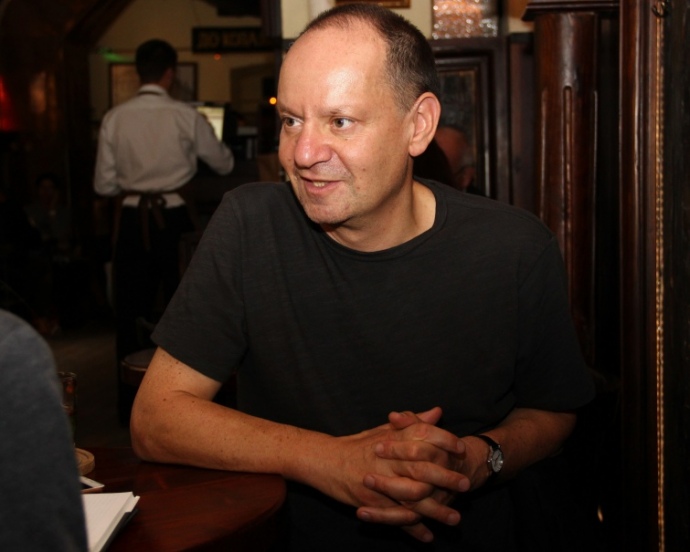
– Do you feel that the Ukrainian government believes that it's possible? Unfortunately I talked to different people in our government and I think they do not believe that it's possible to create a tribunal. They do believe mostly in the International Criminal Court.
– I think that it's difficult, it's tough, it's new. And I think that some people in the government do truly believe. I think the foreign minister personally and I think president Zelenskyy personally believes. No government has opposed it.
There is a draft resolution in the European Parliament to support the creation of a special tribunal for the crime of aggression. I think there will be people to say "no it's too difficult, it's impossible"
And I just think back to Lemkin and genocide. You know people said to Lemkin it would never happen. But it happened. So we have to just wait and see.
I think four countries will be very significant. The United States, Britain, France and Germany. I'm in conversations with people from each of those countries. They have not said a word against this.
– What's the time frame?
– I think you got the attention of the world right now. I have a concern that as the war moves from across the whole of Ukraine to the east of Ukraine the world's attention will begin to slip. There may be terrible horrors in the eastern Ukraine but there will not be the same attention, as there is now when Kiev and Kharkiv and Chernihiv and even Lviv and Odesa are under attack.
So I think there is a window and that window will close with the passage of time. The decisions that are taken in the coming weeks will have profound consequences. Because if the crime of aggression slips away as being a focus increasingly I think the attention will go on the soldiers and the commanders who are responsible for these crimes. And focus on the people in Moscow will diminish.
So for me the accent is in these coming weeks and months if the government of Ukraine wants to keep that door open, the foreign minister says they do want to keep that door open.
President Zelenskyy is gonna face a very difficult situation. At a certain point it's just possible the Russians will say: OK, we bring this to an end but here are our conditions. One of the conditions is – you stop all these investigations for international crimes.
What does the president do? He of course wants to bring security and peace to the people of Ukraine, but what is the price? This is a really difficult decision for any president.
I'm not a politician, I can't make those kinds of decisions. The balancing exercise on how you weigh these things up.
Russia and Ukraine can stop things like investigations in Ukraine. They can stop the creation of a special tribunal. They can't stop investigations in Germany, Poland and Lithuania, and they can't stop investigations by the International Criminal Court.
If the politics changed, they would continue with their investigations, but they would probably focus on less hired people.
And I can imagine a scenario in six months' time, when the Russian leadership says: okay, these terrible things that happened in Bucha – we accept, perhaps, that they happened, and they were not the responsibility of the commanders, it was a few soldiers, a few bad eggs, and we're gonna hand them over to you. That happens sometimes when the government hands over smaller people to get rid of the problem.
Politics and law live together, we all know this, in our own lives we know how this functions. What I think is incredibly important is that the facts and the evidence continued to come out.
The images from Bucha were so terrible and so shocking, it is hard to imagine any government saying: we would accept there can be no investigation of this. I don't think this can happen. I simply don't think this can happen in Ukraine.
– There is a concept of responsibility to protect in international law. How should it work with Ukraine. And can we protect ourselves with violating some laws and customs of war.
– No, responsibility to protect is not part of the story. Now, basically, that disappeared after Iraq.
The war in Iraq was manifestly illegal and it should not have happened. And frankly the war in Iraq was used by Mr Putin in his speech to justify what he was doing. It's another consequence of the terrible mistake that was the war in Iraq.
Ukraine must honor and respect the rules. And if there is evidence that Ukraine is violent and the rules on the laws of war or crimes against humanity, then the prosecutor must investigate those also.
One violation of the rules does not justify another violation of the rules. And when evidence has emerged of their allegations of acts of torture, I've noticed that the Ukrainian government has been very strong in responding: we would investigate these, we will find out if they are true, we will deal with the thing.
It's very important to the legitimacy of investigations that they are evenhanded. And it is therefore very important that Ukraine respects the rules and does not do what Russia does.
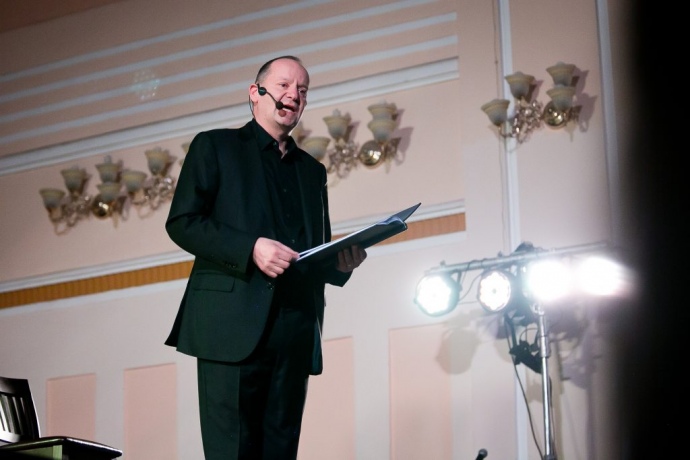
– Now a lot of people in Ukraine are disappointed with the international community, with the United Nations, with the Red Cross. And our president Zelenskyy said that the goals of the United Nations had not been achieved. Do you think that the global security system will change after the Russian-Ukrainian war?
– Now. I think the system is completely broken. And it cannot be repaired under current conditions. We are in a terrible situation. And I don't see any immediate way out of this situation with the architecture that was created in 1945.
And I've been speaking to various ambassadors in the United Nations, who all recognize that the system is completely broken. And there is a sense of desperation as to how we get around in a situation where it appears that a permanent member of the Security Council is committing systematic violations of international law on a massive scale and there is nothing to be done about it. We also have allegations in relation to China, on the treatment of the Uighur community.
This is an issue also of double standards. What I'm told is that the three permanent members of the Security Council who could make this special tribunal happen France, Britain and the United states don't say there's no crime of aggression, they don't say there's no mechanism that could be created.
They're worried that if a special tribunal is created for Russia today, a special tribunal could be created for Britain, or France, or the United States tomorrow. That the precedent would be said and it would be used against them in the future.
Sonya Lukashova, Sevgil Musaeva, UP